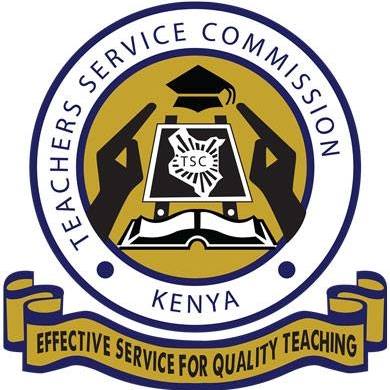10 Offences That Could Make TSC Interdict a Teacher
OFFENCES, CLAUSES BREACHED AND EVIDENCE REQUIRED FOR INTERDICTION
The following are the offenses that can lead to a teacher’s interdiction by the Teachers Service Commission (TSC). For this article, they have been classified into Immoral Behaviour and Professional Misconduct.
IMMORAL BEHAVIOR
- Sexual harassment/flirtation/indecent act
- Love relationship
- Exposure to pornographic materials
- Sexual intercourse
- Sodomy
- Lesbianism
These offenses break the clauses (a)(i), (a)(ii), (a)(iii), (a)(iv),
Evidence required
- Handwritten statements from victims or witnesses
- Exhibits such as
- love letters
- court proceedings
- investigation reports by heads of institutions, county Directors or Sub-County Directors
- Minutes of BOM following interviews with pupils or students, teachers and any other witnesses
- photographs
- gifts
- agreements
- County discipline minutes.
PROFESSONAL MISCONDUCT
A. NEGLIGENCE OF DUTY
- Grading fake marks.
- Failure to perform T.O.D duties.
- Failure to attend school assemblies and official meetings
- Failure to take students for official duty/functions
- Wilful neglect to perform any work or careless or improper performance of any work assigned to the teacher.
- Failure to teach schedules lessons.
- Failure to prepare professional documents e.g. schemes of work.
- Allowing examination cheating.
The above-listed offences break clause (b) (i)
Evidence required
- Minutes where teacher and witnesses were interviewed.
- Investigation reports.
- Statements from witnesses.
- Staff meeting minutes.
- Police reports.
- Written reports by agents/County Directors/Supervisors.
- Statements from witnesses.
B. CHRONIC ABSENTEEISM
(a) Persistent/repeated absence from duty without permission.
Lateness for duty.
The above listed offence breaks clause (b) (iii)
Evidence required
- Casualty returns
- Letters from authorities reporting the teacher’s absence.
- Monthly staff returns.
- Warning/show cause letters for absenteeism.
- Daily attendance registers/clock in register.
C. DESERTATION OF DUTY
Absence from duty for 14 continuous days (without written permission) including weekends and public holidays. These may include:
- Failure to report for posting after the expiry of study leave.
- Proceed on study leave without approval
- Failure to report to the new station after release
The above-listed offences break clause (b) (iv)
Evidence required
- Monthly staff returns
- Letter granting study leave stating when to resume duty.
- Letters from relevant authorities reporting the teacher’s desertion/release or reporting for duty.
- Casualty returns.
D. INSUBORDINATION
Failure to obey official instructions from supervisors e.g. Commission Secretary, Heads of Institution, County Directors and the Sub-County Director e.g.:
- Proceeding on transfer without formal release
- Failure to forward correspondence by teachers to and from the Commission.
- Failure to handover/takeover an institution upon transfer.
- Failure to submit books of accounts
- Failure to respond to letters from supervisors.
- Failure to take up posting after disciplinary process/transfer/deployment
The above-listed offences break clause (b) (vi)
Evidence required
- Written reports by agents/County Directors/Supervisors.
- Minutes of the full BOM, minutes where the teacher and witnesses were interviewed.
- Letters giving directives/instructions and evidence of failure to adhere
- Minutes of disciplinary panel
- Investigation reports
- Staff meetings minutes
- Police reports
- Medical reports
E. INFAMOUS CONDUCT IN ANY PROFESSIONAL ASPECT
Infamous conduct includes:
- Drunkenness or any form of intoxication during the working house.
- Fighting in public or any violent behavior that may bring the profession to disrepute.
- Conduct or behavior which contravenes six (6) of the constitution.
The above-listed offences breach clauses (c) (i), (c) (ii), (c) (iii)
Evidence required
- Minutes of the full BOM minutes where the teacher and witnesses were interviewed.
- Investigation reports.
- Police reports.
- Written reports by agents.
- Show cause letters.
- Statement from witnesses.
- Medical reports
F. FORGERY/IMPERSONATION/COLLUSION/FRAUD AND CORRUPT DEALS/BRIBERY
- Submission of forged certificates.
- Misrepresentation/falsifying information.
- Some examination malpractices/irregularities.
- Causing payment of salary to teachers, not on duty e.g. desertions, deceased persons.
- Failure to report offenses by teachers.
- Forged signatures/stamps
- Obtaining registration through fraudulent means.
- Submission of incorrect staff returns.
The above-listed offences breach clause (d)
Evidence Evidence
- Sample signature/rubber stamps
- Copies of forged documents/certificates
- Confirmation of certificates by the issuing bodies e.g. KNEC, universities.
- Investigation reports.
- Statements by those impersonated/witnesses/experts in the related fields.
G. MISMANAGEMENT/MISAPPROPRIATION/EMBEZZLEMENT OF PUBLIC FUNDS
Mismanagement is handling of public funds and/or property in an efficient, irregular or in any manner likely to cause loss to the institution.
Misappropriation is use of public funds for unauthorized purposes by a teacher.
Embezzlement is the fraudulent conversion of public funds and property entrusted to a teacher to personal use.
Loss of public funds through negligence. Failure to account for public funds as per the law.
The above-listed funds break clause (e)
Evidence required
- Final audited accounts/annual audited reports/interim audited accounts, promissory notes.
- Investigation reports, relevant financial and accounting documents.
- Financial reports present to BOM and minutes.
H. CONVICTION OF CRIMINAL OFFENCE
A teacher is interdicted upon conviction (i.e. being found guilty of a criminal offense) jailed/fined or non-custodial sentence.
Conviction of a sexual offence or any offence which in the opinion of the Commission renders the person unfit to be a teacher.
The above-listed issue breaks clause (f)
Evidence Required
- A copy of charge sheet showing nature of the offence.
- Certified copies of court proceedings and judgment.
- Letters from authority reporting the arrest/reports.
- Casualty return showing the date arrest/imprisonment.



Comments are closed.